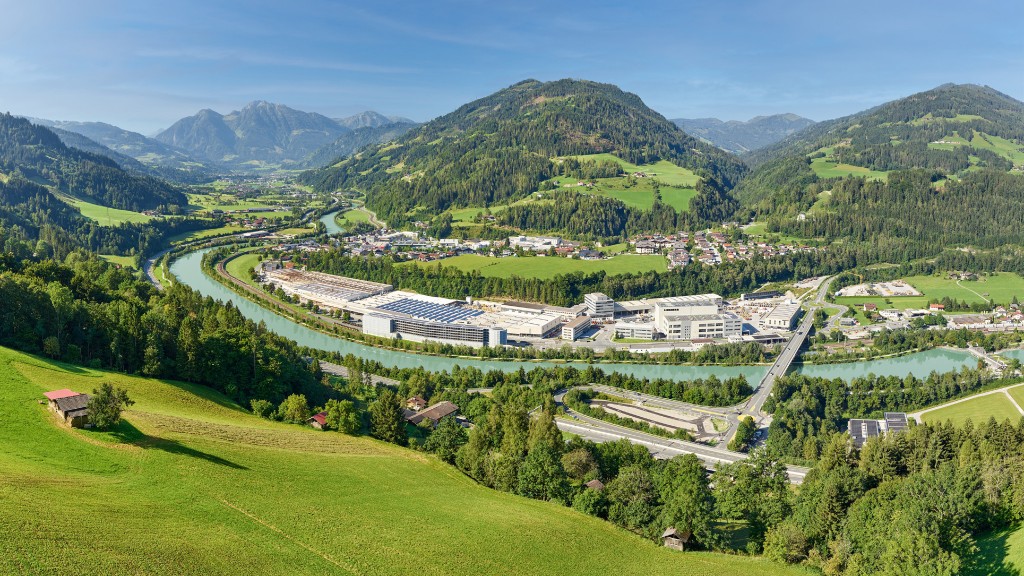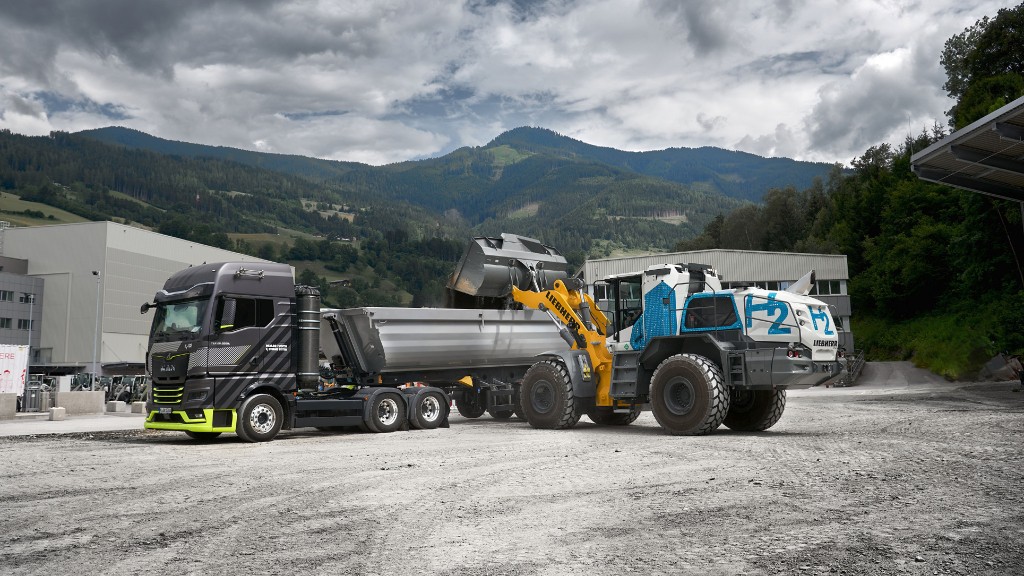
Liebherr-Werk Bischofshofen is planning to expand its production capacity by building an additional manufacturing plant for small wheel loaders in Wildon, Styria. The new production site is scheduled for completion in 2029.
The Liebherr Group's wheel loader production plant in Bischofshofen employs 1,200 people on a site covering 170,000 square metres. With its present capacity, up to 7,000 wheel loaders can be produced each year. In the medium term, the company expects demand to reach 10,000 units per year, which means that production capacity has to be expanded.
"Our site is beside the B 159 road that runs along the Salzach valley and is hemmed in by the slope to Mitterberghütte, the railway line and the river Salzach. We would only be able to expand our site by building upwards. Current projects around Bischofshofen do not have the required space and would result in a complex transport concept that would further burden traffic in the region. This makes the expansion in Wildon a logical and necessary decision in order to be able to meet the increasing market demand," says Peter Schachinger, managing director for production at the Liebherr plant in Bischofshofen.
The Wildon and Bischofshofen site
The decision was made to build a new production facility on a 200,000-square-metre site in Wildon. The new facility will manufacture the small wheel loader models L 504 to L 518, as well as models for partners John Deere and Claas.
Liebherr says that the location of the new site offers advantages that make it attractive. In particular, the rail connection and the proximity to the Cargo Centre Graz (CCG) allow efficient material supply and the dispatch of finished products. This optimizes production processes and minimizes environmental impact by reducing lorry transport.
In addition, Wildon offers the ideal infrastructure for future expansion. The proximity to key suppliers and the availability of skilled workers in the region are other advantages that make the location attractive. The planned expansion will not only create new jobs but will also strengthen the local economy and contribute to regional development. The positive cooperation with the project participants on site had a significant effect on the decision.
The Bischofshofen plant will continue to be responsible for the production of large and medium-sized wheel loaders, as well as steel construction for the entire wheel loader range. Due to the increasing demand for large and medium-sized wheel loaders, and the fact that the new plant will take several years to build, good capacity utilisation can be expected in Bischofshofen.
"Liebherr's Bischofshofen plant will remain the centre of expertise and development for all the company's wheel loaders. The enormous potential for growth in countries such as the USA, along with increasing requirements for digitalisation and intelligent assistance systems, allow us to look with confidence into the future of our main plant in Bischofshofen," says Schachinger. Employees have been involved in all of the planning at the Liebherr plant in Bischofshofen which emphasizes Liebherr's commitment to being an attractive and secure employer for the region.
Liebherr plans to integrate technologies and environmentally friendly processes at the new site. These include measures to save energy, the use of renewable energy, and the minimization of emissions.
By 2030, Liebherr plans to increase its production capacity to 10,000 wheel loaders per year and achieve a 10 percent share of the global market (excluding China). These objectives are part of the long-term strategy to increase production capacity, ensure high product quality, and promote innovation.
The planned expansion of Liebherr Bischofshofen with the new site in Wildon is a significant step in the development of the company. This step will enable Liebherr to expand its production capacity, ensure sustained product quality, and achieve its long-term growth targets. At the same time, it will strengthen the local economy and pursue the long-term goal of minimizing the environmental impact.
Company info
1015 Sutton Drive
Burlington, ON
CA, L7L 5Z8
Website:
liebherr.com/en/can/about-liebherr/liebherr-worldwide/canada/liebherr-in-canada.html



